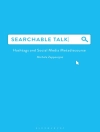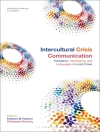This book explores how endangered local interpreters in Afghanistan were seen through Western eyes in the period from 2014, when the West drew down the bulk of its military forces, to the summer of 2021, when NATO forces withdrew completely. The author examines how these interpreters were understood and represented by Western governments, militaries, agencies, press and lobby organisations, how the understandings changed over time, and to what extent the representations reflect distinct rationales for intervention/historic relationships with Afghanistan, specific immigration and anti-terrorism policies, and notions of citizenship. The book will be of interest to students and scholars of translation and interpreting, history, war studies, and migration studies.
Tabella dei contenuti
Chapter 1: Reversing the Gaze.- Chapter 2: Western Imaginings of Afghanistan.- Chapter 3: Spaces of Encounter.- Chapter 4: Naming the ‘Interpreter’: from the NATO drawdown until the Evacuation.- Chapter 5: Evacuation.- Chapter 6: After the Evacuation.- Chapter 7: Conclusions.
Circa l’autore
Hilary Footitt is an Associate Fellow of the Institute of Languages, Cultures and Societies, School of Advanced Study, University of London, UK.












